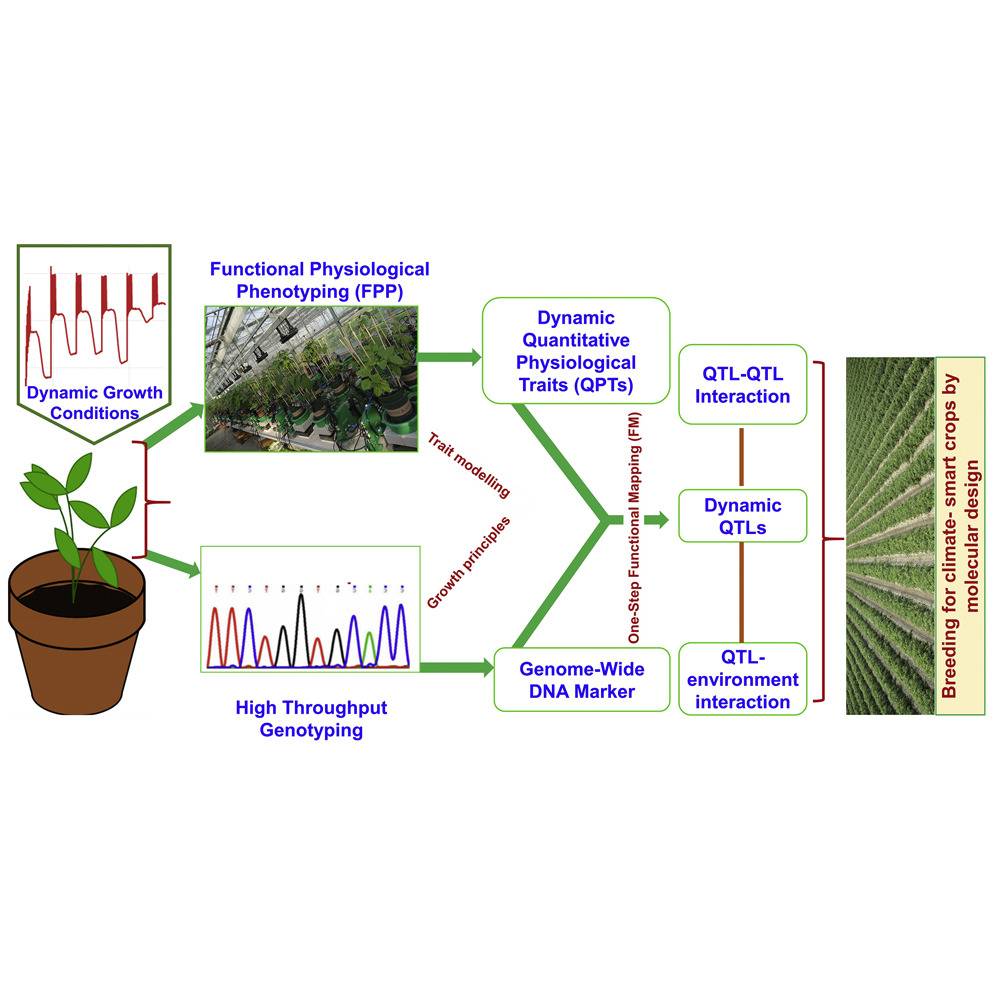A plant physiology phenotyping platform is used to study plant physiological traits and phenotypes. Such platforms typically incorporate advanced sensor technologies, data acquisition, etc., designed to help scientists and researchers better understand plant growth and development processes. Lifeasible empowers agricultural researchers to ensure agricultural growth through plant physiological phenotyping. This enables rapid, automated processing and analysis of large amounts of phenotypic data, providing insight into plant-environment interactions while reducing development time and time to market.
 Figure 1. Functional physiological phenotyping with functional mapping. (Pandey et al., 2021)
Figure 1. Functional physiological phenotyping with functional mapping. (Pandey et al., 2021)
Physiological phenotyping plays a crucial role in driving the agricultural sector towards more efficient and sustainable practices. By gaining a deeper understanding of a plant's physiological characteristics, growers can better understand the optimal conditions required for its growth and development. This understanding can be used to reduce wasted resources and increase crop productivity, ultimately improving yields and profitability. Additionally, utilizing physiological phenotyping can help determine how plants respond to different environmental stressors, such as drought or disease, and provide ways to develop strategies to mitigate the negative effects of these stressors on crop production.
Physiological phenotyping is a valuable tool used in various fields of research and practice to understand the physiological characteristics of organisms. It involves measuring and analyzing physiological characteristics to gain insights into an organism's functioning, health, and response to stimuli. In practice, physiological phenotyping is used in various ways to enhance our understanding of organisms.
Lifeasible through technologies such as molecular markers, genetic mapping, and genome sequencing, it is possible to analyze the genetic composition of plants and identify specific genes or genetic regions associated with desired traits such as disease resistance, high yield, or increased nutrient content. This information enables the selection of plants with the desired genotypes and crossbreeding to develop new crop varieties with improved traits. By harnessing the power of genomics and genetics, crop improvement programs can increase crop productivity, sustainability, and resilience to meet the growing demands of a growing population and changing environmental conditions.
If you are interested in our physiological phenotyping platform, please do not hesitate to contact us anytime.
Reference